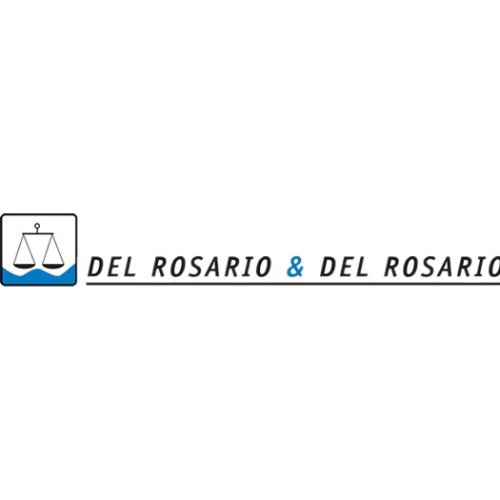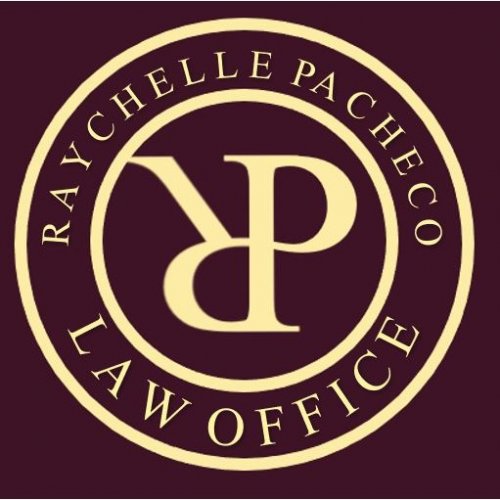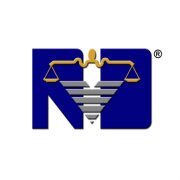Best Health insurance Lawyers in Philippines
Share your needs with us, get contacted by law firms.
Free. Takes 2 min.
Or refine your search by selecting a city:
List of the best lawyers in Philippines
About Health Insurance Law in Philippines
In the Philippines, health insurance is a crucial component of the healthcare system, aiming to provide financial protection against medical costs incurred by individuals and families. The landscape is a combination of public and private health insurance options. The key public system, known as the Philippine Health Insurance Corporation (PhilHealth), is a government-owned and controlled corporation that provides universal health coverage for all Filipinos. The broader legislative framework encompasses various laws and regulations governing the operations of both public and private health insurance providers in the country.
Why You May Need a Lawyer
There are several scenarios where individuals may require legal assistance with health insurance matters. These include disputes with insurance providers regarding claims denial, challenges related to policy interpretation, cases of insurance fraud, and the need to navigate complex health insurance regulations. Lawyers specializing in health insurance can help interpret policy language, provide representation in disputes, and guide clients through litigation processes should the need arise. Legal advice is particularly crucial when dealing with large claims or when facing systemic issues within insurance services.
Local Laws Overview
Key aspects of local laws concerning health insurance in the Philippines include the National Health Insurance Act of 1995, which established PhilHealth and set the framework for its operations. In addition, the Universal Health Care Act of 2019 aims to provide comprehensive healthcare coverage and access to all citizens. This law mandates automatic membership for every Filipino in the National Health Insurance Program. Other important regulations involve the set of guidelines for private insurance providers including licenses, ethical practices, and consumer protection measures, ensuring these entities operate within the legal frameworks set by the Insurance Commission of the Philippines.
Frequently Asked Questions
What is PhilHealth?
PhilHealth is the national health insurance program of the Philippines, designed to provide health insurance coverage and ensure affordable access to health care services for all Filipino citizens.
Who is eligible for PhilHealth?
All Filipino citizens are eligible for PhilHealth, including employed individuals, self-employed, and overseas Filipino workers. Membership is also extended to senior citizens and indigent individuals as identified by the Department of Social Welfare and Development (DSWD).
Can foreigners avail health insurance in the Philippines?
Yes, foreigners can avail themselves of private health insurance offered by various companies in the Philippines. However, participation in PhilHealth may require specific conditions, such as residency or employment status.
How do I file a claim with my health insurance provider?
To file a claim, you typically need to fill out claim forms provided by the insurance company and submit necessary documents such as medical records and receipts. It's essential to adhere strictly to the insurer's procedures to avoid claim denial.
What should I do if my claim is denied?
If your health insurance claim is denied, you should review the policy and the reason provided for the denial. If you believe the claim was wrongly denied, consider seeking legal advice to contest the decision.
What are the common grounds for claim denial?
Common reasons for health insurance claim denial include non-disclosure of pre-existing conditions, policy exclusions, incomplete documentation, or services deemed not medically necessary.
Is it possible to switch between health insurance providers?
Yes, switching between health insurance providers is possible. However, it is important to compare plans carefully, understand the implications, and ensure there are no gaps in coverage during the transition.
How is insurance fraud detected?
Insurance fraud can be detected through various methods, including audits, automated cross-checking of data, whistleblower reports, and investigation by fraud detection units within the insurance companies or the Insurance Commission.
What are pre-existing conditions?
Pre-existing conditions are medical conditions or illnesses that exist before a new health insurance policy begins. Some policies may have waiting periods or exclusions for treatment related to these conditions.
Is mental health covered by health insurance in the Philippines?
Mental health services are covered under PhilHealth and many private insurance policies; however, coverage limits and specific services included may vary between different providers and policies.
Additional Resources
For those seeking further assistance or information, here are some key resources:
- Philippine Health Insurance Corporation (PhilHealth) - for information on public health coverage.
- Insurance Commission - for regulatory issues and consumer protection in insurance services.
- Department of Health (DOH) - for broader health services and policy information.
- Department of Social Welfare and Development (DSWD) - particularly for services aimed at indigent citizens and vulnerable groups.
Next Steps
If you need legal assistance with health insurance matters, consider the following steps:
- Review your health insurance policy to understand your coverage and the terms of service.
- Gather all necessary documents related to your case or legal inquiry.
- Consult with a lawyer specialized in health insurance law to assess your situation and provide guidance.
- If needed, the lawyer can assist you in mediating with your insurance provider or in pursuing legal action.
- Stay informed about changes in health insurance laws and regulations in the Philippines to protect your rights and benefits.
Lawzana helps you find the best lawyers and law firms in Philippines through a curated and pre-screened list of qualified legal professionals. Our platform offers rankings and detailed profiles of attorneys and law firms, allowing you to compare based on practice areas, including Health insurance, experience, and client feedback.
Each profile includes a description of the firm's areas of practice, client reviews, team members and partners, year of establishment, spoken languages, office locations, contact information, social media presence, and any published articles or resources. Most firms on our platform speak English and are experienced in both local and international legal matters.
Get a quote from top-rated law firms in Philippines — quickly, securely, and without unnecessary hassle.
Disclaimer:
The information provided on this page is for general informational purposes only and does not constitute legal advice. While we strive to ensure the accuracy and relevance of the content, legal information may change over time, and interpretations of the law can vary. You should always consult with a qualified legal professional for advice specific to your situation.
We disclaim all liability for actions taken or not taken based on the content of this page. If you believe any information is incorrect or outdated, please contact us, and we will review and update it where appropriate.
Browse health insurance law firms by city in Philippines
Refine your search by selecting a city.
















